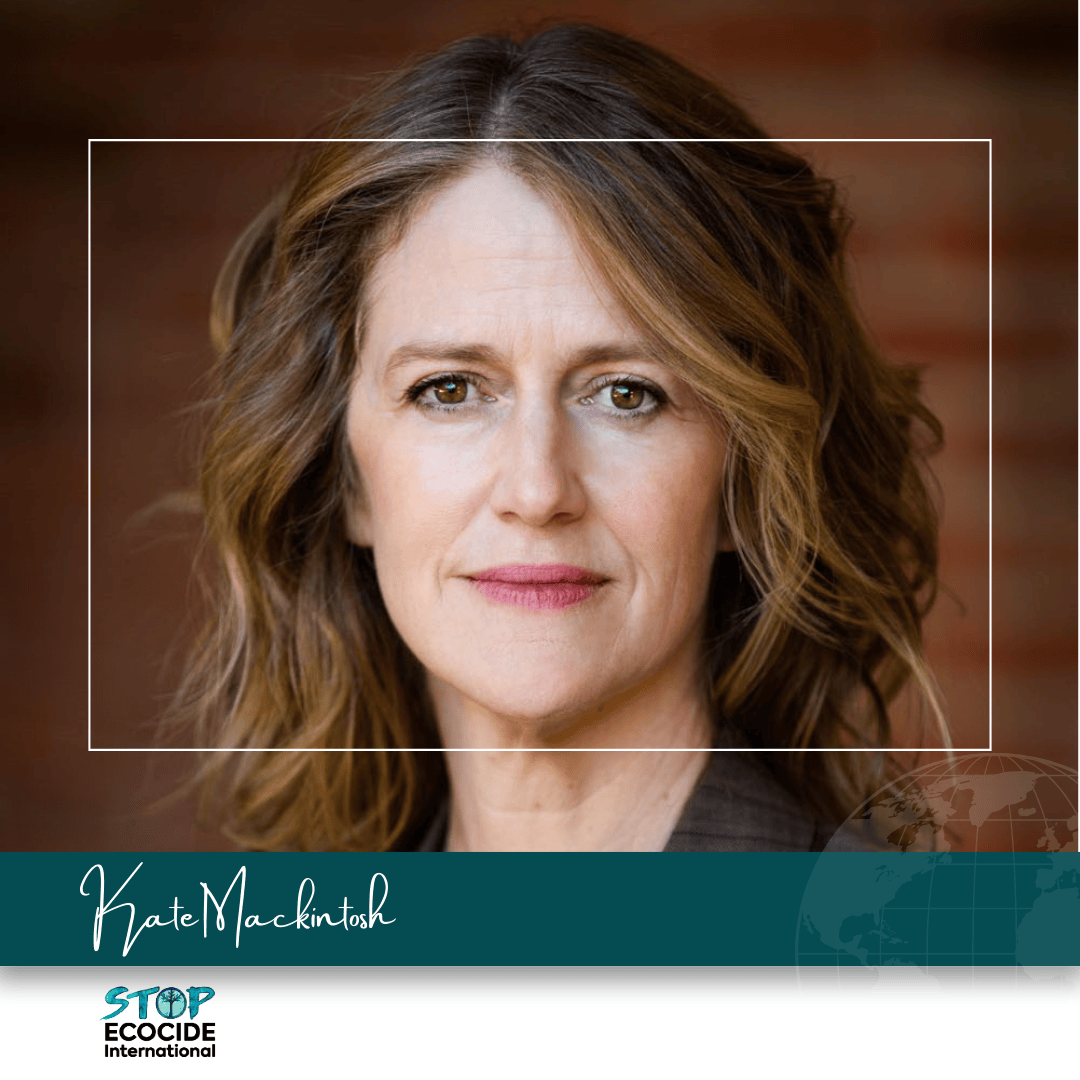Kate Mackintosh at the UN Business and Human Rights Forum, Geneva
Kate Mackintosh is the Executive Director of the The Promise Institute for Human Rights (Europe).
This piece was originally delivered by Kate Mackintosh at the UN Business and Human Rights Forum, Geneva, 24 November 2025
Around the world, the worst environmental harms are overwhelmingly borne by those with the least political and economic power. That is the backdrop against which the conversation on accountability, and on ecocide, must be understood.
Since the publication of the Independent Expert Panel’s definition in 2021, we have witnessed remarkable momentum.
Ecocide has now been criminalised in Belgium and Chile, with legislative proposals advancing in Brazil, Argentina, Italy, Scotland, French Polynesia, and others.
By May of next year, all EU Member States will be required to criminalise conduct equivalent to ecocide under the new Environmental Crime Directive. And at the international level, Vanuatu, Fiji, and Samoa, joined by the Democratic Republic of Congo, have formally proposed amending the Rome Statute of the International Criminal Court to include ecocide as the fifth international crime, alongside genocide, crimes against humanity, war crimes, and the crime of aggression.
So yes, the criminalisation of ecocide is coming, both domestically and internationally. The real question for us, especially in the business and human rights community, is: what difference will it make? How will the emergence of ecocide as a crime strengthen and complement businesses’ obligations to conduct human rights and environmental due diligence?
Let me offer several reflections.
First, ecocide introduces a level of deterrence that civil or administrative liability simply cannot replicate. Criminal law carries both a legal and a moral stigma. A finding, or even an allegation, of an international crime has a gravity that no fine, no settlement, and no compliance order can match. That stigma travels: it affects a company’s reputation, its share price, its access to markets, its relationships with employees, consumers, and investors. It has the real potential to change the risk calculus, and decision making, long before harm occurs.
Second, the deterrent effect is doubled because, at least at the International Criminal Court, we are talking about individual criminal responsibility, not corporate liability. We are speaking about the potential personal liability of directors, executives, and senior decision-makers who recklessly disregard the risk of severe and long-term environmental harm. You can outsource risk. You can outsource compliance. But if you, as a senior decision-maker, knowingly approve a course of action that causes severe harm, the liability is yours alone. That sharpens judgement in ways other accountability mechanisms simply cannot.
And so, ecocide strengthens due diligence by changing how projects are conceived from the outset. When the possibility of criminal liability exists, risk assessments are no longer a tick-box exercise. They demand credible alternatives, genuine avoidance of high-risk pathways, and early course correction, not merely mitigation after the fact. The ecocide lens forces a reality check: is this project fundamentally safe? Or is it designed on the assumption that someone else, usually a vulnerable community, will bear the risk?
This also affects finance. Investors begin to rechannel capital toward projects with a lower likelihood of triggering criminal thresholds. That means safer portfolios, reduced exposure to stranded assets, and increased support for climate- and nature-positive business models. In other words, ecocide can help align the financial system with planetary safety.
Of course, a crime of ecocide would apply only to a very small number of extreme cases, the most severe, widespread, or long-term harms. The overwhelming majority of companies will never come close to this threshold. But those few that do can profoundly distort the competitive environment.
A crime of ecocide supports businesses who are trying to do well by helping to level the playing field. It protects businesses that invest in cleaner technologies, in safer supply chains, and in long-term value from being undercut by competitors who are externalising catastrophic environmental costs.
Finally, criminal law lifts the burden from the shoulders of the victims.
In civil litigation and human rights claims, the burden is squarely on victims. It is affected communities who must bring the case, who must find funding for the case, who must endure years of proceedings while harm continues. The law requires them to carry the weight of proving what has been done to them. Criminal law removes that burden. When conduct is criminalised, the state, or at the ICC, the international community, takes on the responsibility of responding to acts we collectively recognise as intolerable. Criminal law acts on behalf of all of us. It signals that certain harms are not merely private disputes; they are offences against shared values and, in the case of ecocide, against the integrity of the Earth itself. That shift in responsibility is profound.
Ecocide shifts that burden of risk away from vulnerable communities and back onto those with the power, and the responsibility, to prevent catastrophic harm.
Ecocide will not solve everything. But it changes the basic incentives in the system. It brings clarity for policymakers, fairness for responsible businesses, and real protection for communities. And when incentives change, behaviour changes. That is why this moment matters.

